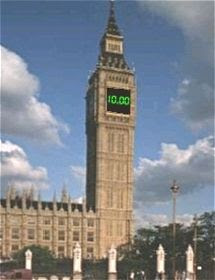A synonym is a word that means the same as another. Necessary and required are synonyms. An antonym is a word that means the opposite of another. Wet and dry are antonyms. While synonyms and antonyms are not in themselves interesting, the complexities and irregularities of the English language sometimes make synonyms and antonyms interesting to explore. Many complexities result from words having multiple definitions. A trivial example is a word with synonyms that aren't synonyms of each other, the word beam, for example, having the synonyms bar and shine. Similarly, some words have antonyms that are neither synonyms nor antonyms of each other but completely unrelated: the word right, for example, having the antonyms wrong and left.
A more interesting paradox occurs with the word groom, which does not really have an antonym in the strictest sense but has an opposite of sorts in the word bride, which can be used as a prefix to create a synonym, bridegroom.
The word contronym (also antagonym) is used to refer to words that, by some freak of language evolution, are their own antonyms. Both contronym and antagonym are neologisms; however, there is no alternative term that is more established in the English language.
Contronyms are special cases of homographs (two words with the same spelling). Some examples:
* anabasis - military advance, military retreat
* apology - admission of fault in what you think, say, or do; formal defense of what you think, say, or do
* aught - all, nothing
* bolt - secure, run away
* by - multiplication (e.g., a three by five matrix), division (e.g., dividing eight by four)
* chuffed - pleased, annoyed
* cleave - separate, adhere
* clip - fasten, detach
* consult - ask for advice, give advice
* copemate - partner, antagonist
* custom - usual, special
* deceptively smart - smarter than one appears, dumber than one appears
* dike - wall, ditch
* discursive - proceeding coherently from topic to topic, moving aimlessly from topic to topic
* dollop - a large amount, a small amount
* dust - add fine particles, remove fine particles
* enjoin - prescribe, prohibit
* fast - quick, unmoving
* first degree - most severe (e.g., murder), least severe (e.g., burn)
* fix - restore, castrate
* flog - criticize harshly, promote aggressively
* garnish - enhance (e.g., food), curtail (e.g., wages)
* give out - produce, stop production
* grade - incline, level
* handicap - advantage, disadvantage
* help - assist, prevent (e.g., "I can't help it if...")
* left - remaining, departed from
* liege - sovereign lord, loyal subject
* mean - average, excellent (e.g., "plays a mean game")
* off - off, on (e.g., "the alarm went off")
* out - visible (e.g., stars), invisible (e.g., lights)
* out of - outside, inside (e.g., "work out of one's home")
* oversight - error, care
* pitted - with the pit in, with the pit removed
* put out - extinguish, generate (e.g., something putting out light)
* quiddity - essence, trifling point
* quite - rather, completely
* ravel - tangle, disentangle
* rent - buy use of, sell use of
* rinky-dink - insignificant, one who frequents RinkWorks
* sanction - approve, boycott
* sanguine - hopeful, murderous (obsolete synonym for "sanguinary")
* screen - show, hide
* seed - add seeds (e.g., "to seed a field"), remove seeds (e.g., "to seed a tomato")
* skinned - with the skin on, with the skin removed
* strike - hit, miss (in baseball)
* table - propose (in the United Kingdom), set aside (in the United States)
* transparent - invisible, obvious
* unbending - rigid, relaxing
* variety - one type (e.g., "this variety"), many types (e.g., "a variety")
* wear - endure through use, decay through use
* weather - withstand, wear away
* wind up - end, start up (e.g., a watch)
* with - alongside, against
Finding such idiosyncrasies in slang is much easier. The word bad can be used as slang to mean good. The word bomb has two slang meanings: failure (as usually used in the United States) and success (as usually used in the United Kingdom).
Some noteworthy antonyms aren't homographs (words that are spelled the same) but homophones (words that are pronounced the same). Some of these include:
* aural, oral - heard, spoken
* erupt, irrupt - burst out, burst in
* petalless, petalous - lacking petals, having petals
* raise, raze - erect, tear down
Homophones that are near-antonyms:
* reckless, wreckless

